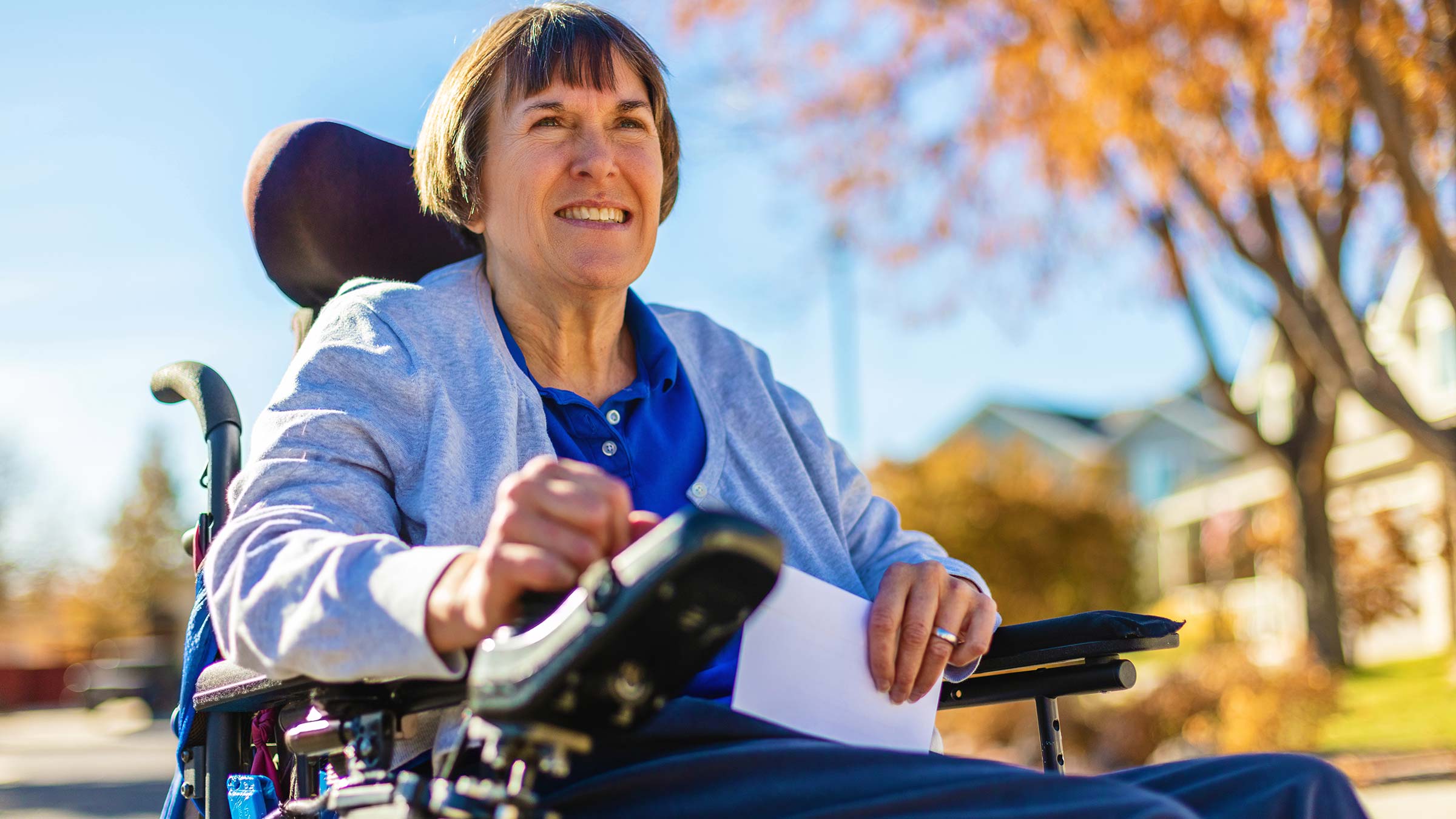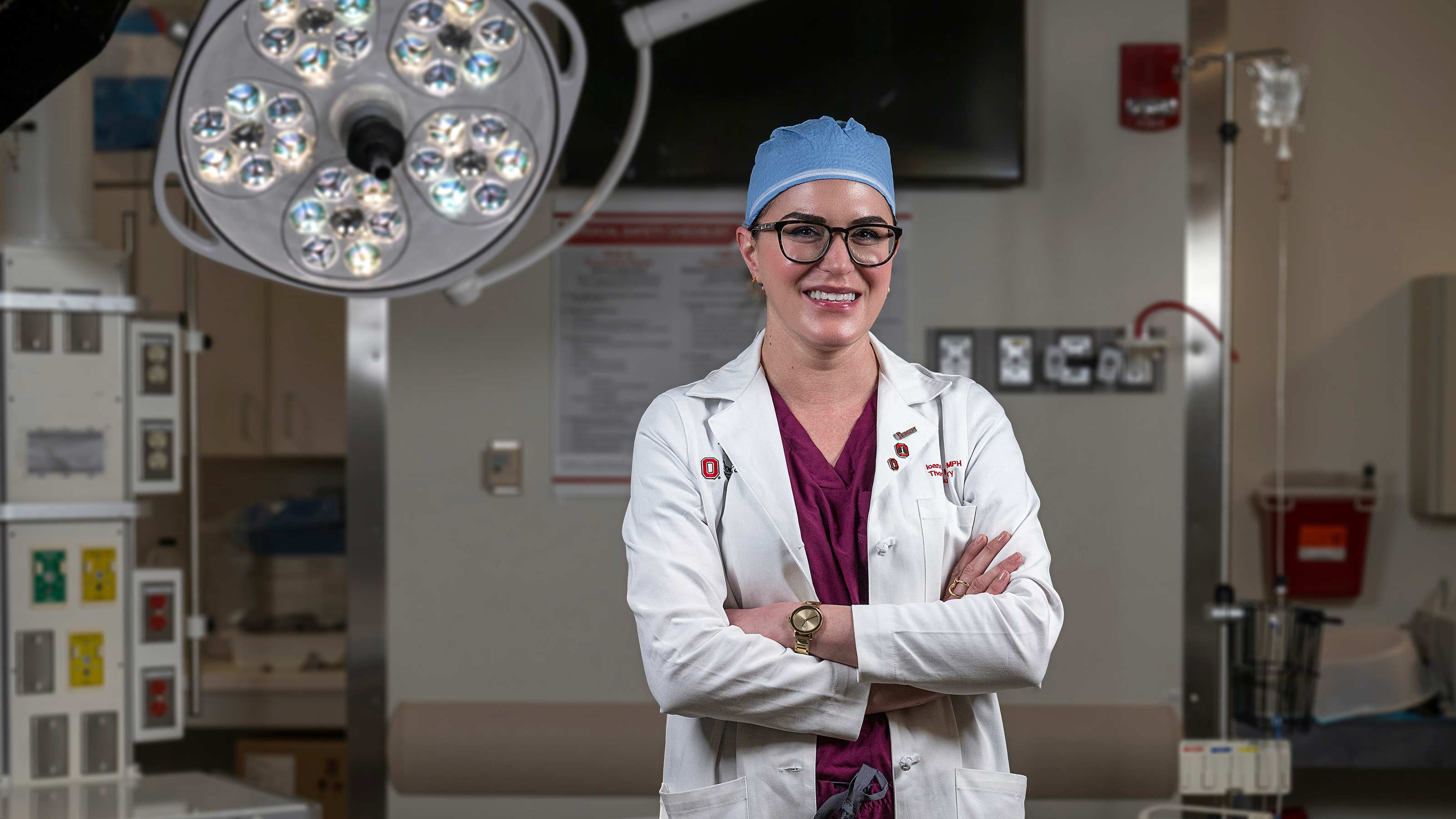How multiple sclerosis changes with age
When you get diagnosed with multiple sclerosis (MS), it can feel overwhelming. It's a long-term condition where your immune system attacks the protective covering around your nerves, causing various symptoms like fatigue, weakness, numbness, gait imbalance, difficulty with memory and multi-tasking, and vision problems.
But there's hope: At The Ohio State University Wexner Medical Center, we’re making strides in treatment to help manage symptoms and slow down the disease's progression.
Finding the right MS health care team as you age
As people with MS get older, some symptoms may get worse, especially with natural aging changes like reduced stamina and balance. Plus, the immune system might keep damaging the nervous system differently as MS progresses, leading to more chronic neurological problems over time.
In the United States, MS is most common between ages 55 and 64, and the increasing disability can be challenging to both patients and caregivers. At Ohio State, we have specialists who are committed to helping MS patients manage symptoms and adapt to aging.
When is multiple sclerosis typically diagnosed, and how does multiple sclerosis evolve as you age?
MS usually shows up in your 20s or 30s, but it can happen earlier or later. As you get older, MS symptoms can change. Some people experience relapses and remissions, while others face a steady decline in function. Later in life, people with MS are more likely to experience a progressive disease course, characterized by a gradual, relentless accumulation of neurological disability. Understanding how MS evolves over time is crucial because it varies from person to person.
Doctors break MS into three stages:
Clinically isolated syndrome (CIS): This is the first episode of MS-like symptoms. Not everyone with CIS develops MS.
Relapsing-remitting MS (RRMS): Most people start with this stage, where they have episodes of symptoms (relapses) followed by periods of stability (remissions). These episodes can vary in severity and frequency. RRMS most often shows up in young adulthood (20s to 30s). Symptoms experienced during relapses might include:
- loss of vision in one eye
- different patterns of numbness or weakness
- double vision
- vertigo
- incoordination
- tremor
- gait imbalance
Ultimately, these symptoms dissipate. Younger people with MS may even return to baseline functioning after an attack. However, if a person has MS, they’ll experience future attacks, particularly if they’re not on medication.
Progressive MS (PMS): This stage usually starts in middle age (40s to 50s) or later, and it involves a gradual worsening of symptoms without remissions. Common symptoms in PMS include:
- increasing weakness and/or numbness in one or more limbs
- gait imbalance
- incoordination
- memory difficulties
Progressive MS often follows a relapsing remitting phase. In that case, the progressive phase typically starts 15-20 years after the initial diagnosis. Approximately 10-15% of people with MS don’t undergo an initial relapsing remitting phase but begin the disease with a progressive course in mid-life.
How MS can affect your “biological age”
Chronological age simply counts the years you've been alive, but biological age digs deeper, reflecting the wear and tear your body has endured over time. Research suggests that biological aging might speed up in people with MS. Interestingly, biological aging is closely linked to how MS progresses. Therefore, interventions that halt biological aging may be of particular benefit to middle aged and older people with MS.
Can you ever feel normal with MS?
Living with MS can be challenging, but it's possible to feel relatively normal between attacks. Many people with the disease suffer from fatigue, and it can be pervasive. Most people with MS will have some degree of fatigue throughout their lives, even after the more acute neurological symptoms, such as visual loss or weakness or numbness, have receded.
Once someone has recovered from an MS attack, old symptoms can resurface temporarily. This is especially true under times of stress when body temperature goes up, such as after heavy exercise, taking a hot bath or having a fever. However, these symptoms fade away once the body temperature returns to normal.
Can you reverse progressive MS, or only slow it? How can you slow MS?
We've made significant progress in treating relapsing-remitting MS (RRMS) with over 20 drugs that can reduce relapse risk by up to 70-80% or more. However, these drugs aren't as effective in slowing the disability accumulation in progressive MS (PMS).
Unfortunately, we don't yet have a treatment that can directly reverse MS-related nerve damage or restore lost functions. But studies suggest that early aggressive treatment in RRMS can delay progression to progressive MS and improve the long-term outlook.
To help manage existing neurological symptoms, MS specialists offer a range of treatments including:
- medications
- physical and occupational therapy
- cognitive rehabilitation
- counseling
Additionally, adopting healthy lifestyle habits believed to slow down biological aging, like regular exercise, a balanced diet, quitting smoking and intermittent fasting may also slow down neurological decline in people with MS.
What’s the advantage of seeking MS treatment at a place like Ohio State?
The six physicians at our MS clinic are highly trained in diagnosing and caring for MS patients. They collaborate closely with nurse practitioners, nurses and other health care providers. Our approach to treating MS is comprehensive, incorporating medications, therapy and lifestyle changes.
Our MS Multidisciplinary Symptom Management (MMSM) Clinic is staffed by neurology-certified professionals, including physical therapists, occupational therapists, pharmacists and neuropsychologists, all with specialized training in MS.
We have specific clinics focused on enhancing quality of life and mental health for MS patients, such as the MS Quality of Life Clinic and MS Psychotherapy Clinic. We also provide support for MS patients at every life stage, including preconception planning and pregnancy.
Our newest addition, the Aging with MS Clinic, caters to older individuals with MS, focusing on their unique needs and conditions.
Overall, our goal is to manage symptoms, slow down disease progression and improve daily life for all our patients.
As a top academic center for MS care and research, we're not only dedicated to providing the best care but also to training the next generation of MS specialists and scientists through our residency and fellowship programs. We're continuously pushing the boundaries of knowledge through our research efforts and clinical trials.
Our ongoing research is focused on understanding how biological aging impacts MS and finding new ways to repair the nervous system. This is an exciting time in MS research, and we're proud to be leading the charge in innovation.
We offer our patients the opportunity to participate in these groundbreaking trials, giving them access to cutting-edge treatments and contributing to the advancement of MS care.

MS doesn’t have to control your life
Ohio State’s MS experts help you regain control and find the best treatments for your lifestyle.
Learn how








